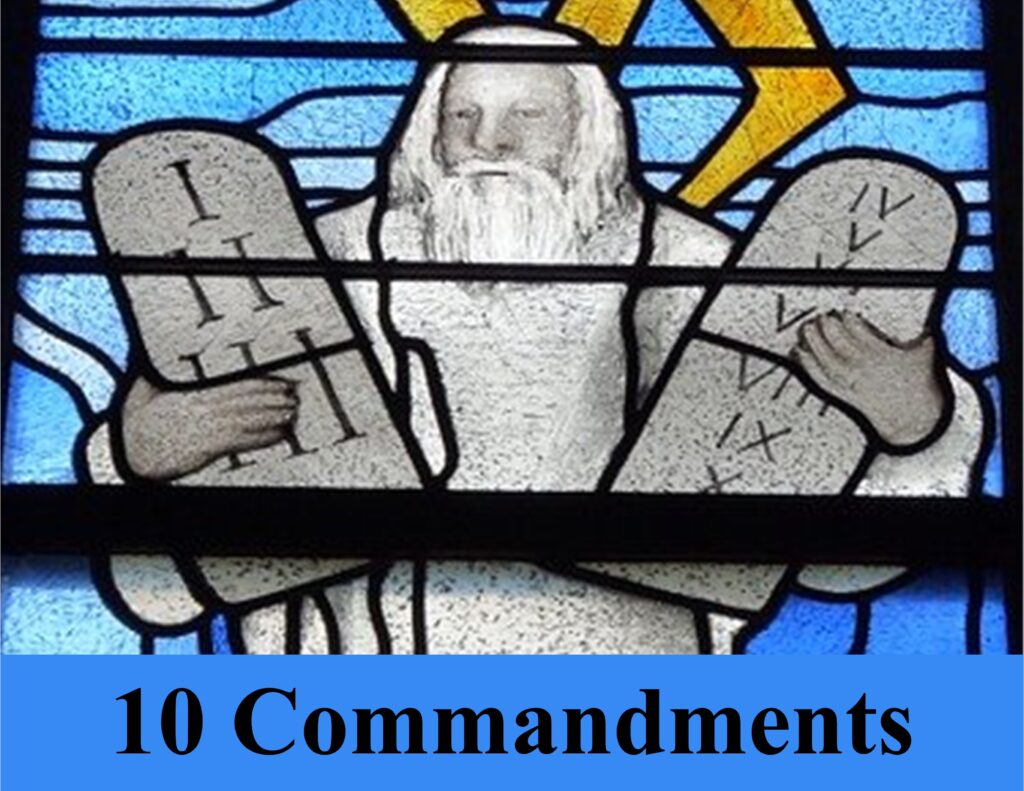
The 10 Commandments form the foundation of the moral code for Catholics.
They were written by God on stone tablets and given to Moses on Mt. Sinai. In the Bible, they can be found in the Book of Exodus and the Book of Deuteronomy.
The first three Commandments deal with strengthening our relationship with God and other seven show how to love each other.
Sometimes the Ten Commandments are referred to as the Decalogue, which means “ten words”.
The Commandments can be used as an examination of conscience because breaking any one of them is a mortal sin.
The road map to eternal life:
A guide to love of God and love of neighbor:
And behold, one came up to him, saying, “Teacher, what good deed must I do, to have eternal life?” And He said to him, “Why do you ask Me about what is good? One there is who is good. If you would enter life, keep the commandments.”
Matthew 19: 16-17
The Commandments are rooted in natural law:
The 10 Commandments work together as a whole:
The Ten Commandments belong to God’s revelation. At the same time they teach us the true humanity of man. They bring to light the essential duties, and therefore, indirectly, the fundamental rights inherent in the nature of the human person. The Decalogue contains a privileged expression of the natural law.
Catechsim of the Catholic Church 2070
The Commandments can be divided and numbered differently:
There are four versions of the 10 Commandments:
God’s commandments teach us the way of life. The negative moral precepts, which declare that the choice of certain actions is morally unacceptable, have an absolute value for human freedom: they are valid always and everywhere, without exception. They make it clear that the choice of certain ways of acting is radically incompatible with the love of God and with the dignity of the person created in his image. Such choices cannot be redeemed by the goodness of any intention or of any consequence; they are irrevocably opposed to the bond between persons; they contradict the fundamental decision to direct one’s life to God.
Pope John Paul II, Evangelium Vitae, March 25, 1995
Commandments are necessary for man to be free:
The Commandments are given by a loving God:
The Commandments reveal where man needs healing and growth:
The Truth, Goodness, and Beauty of the Catholic Church
Being visible and present in the community:
Share this page with friends and family to start a conversation about your faith.
Don’t miss a post. Learn more about the Catholic Church and strengthen your Catholic faith.
Find more Fiercely Catholic video issues here.
Subscribe here.


